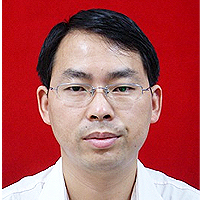Causes of Coronary Angioplasty Denial in Patients Diagnosed with Significant Coronary Artery Disease in East Afghanistan
Published on: 30th October, 2024
Coronary Artery Disease (CAD) is a leading cause of mortality worldwide, with coronary angioplasty being a crucial intervention for patients with significant disease. This study aimed to identify and analyze the causes of coronary angioplasty denial in patients with significant coronary artery disease in Afghanistan, focusing on demographic, socioeconomic, and clinical factors.A case-control study was conducted with a sample size of 213 patients diagnosed with significant CAD at tertiary care center in Afghanistan. The case group consisted of 106 patients who were denied angioplasty, and the control group included 107 patients who underwent the procedure. Data were collected on demographic characteristics, comorbidities, education, residence, functional status, income, and the reasons for angioplasty denial. Descriptive statistics and comparative analyses were performed to assess the factors associated with denial.The primary reasons for angioplasty denial were financial constraints (45.3%, p < 0.001), limited hospital facilities (15.1%, p = 0.045), patient refusal (23.6%, p < 0.001), and physician preference for conservative management (12.3%, p = 0.091). Denial rates were higher among patients who were older, had multiple comorbidities, were from rural areas, and had lower education and income levels. Illiteracy and cultural beliefs contributed significantly to patient refusal, while inadequate healthcare infrastructure disproportionately affected rural populations.Financial and infrastructural barriers are the leading causes of coronary angioplasty denial in Afghanistan, exacerbating disparities in healthcare access, particularly among low-income and rural patients. Addressing these issues through policy reforms, improved healthcare infrastructure, and targeted public health education is essential to reducing CAD-related morbidity and mortality in the country.
Fabrication and Optimization of Alginate Membranes for Improved Wastewater Treatment
Published on: 27th January, 2025
Alginate, a naturally occurring biopolymer extracted from brown algae, presents a promising avenue for developing sustainable and efficient membranes for wastewater treatment. This review comprehensively examines recent advancements in the fabrication, modification, and application of alginate-based membranes for effective water purification. The paper delves into various fabrication techniques, including casting, electrospinning, and 3D printing, which influence the structural and functional properties of the resulting alginate membranes. To enhance performance, strategies such as crosslinking, incorporation of porogens, and surface functionalization are employed. These modifications optimize crucial properties like mechanical strength, porosity, selectivity, and antifouling resistance. Furthermore, Response Surface Methodology (RSM) has emerged as a valuable tool for systematically optimizing fabrication parameters, enabling researchers to identify optimal conditions for achieving desired membrane characteristics. The integration of alginate membranes with biological treatment processes, such as phycoremediation (utilizing microalgae) and mycoremediation (employing fungi), offers a synergistic approach to enhance wastewater treatment efficiency. By immobilizing these microorganisms within the alginate matrix, their bioremediation capabilities are amplified, leading to improved pollutant degradation and nutrient removal. In conclusion, alginate-based membranes demonstrate significant potential as a sustainable and effective technology for wastewater treatment. Continued research and development, focusing on optimizing fabrication processes and exploring innovative integration strategies with biological systems, will further advance the application of alginate membranes in addressing the pressing global challenge of water pollution.
Browse by Subjects
Chemistry Group Journals
Pharma Group Journals
Mathematics & Physics Group Journals
Clinical Group Journals
- Archives of Food and Nutritional Science
- Annals of Dermatological Research
- International Journal of Clinical Microbiology and Biochemical Technology
- Journal of Advanced Pediatrics and Child Health
- Journal of Pulmonology and Respiratory Research
- Insights in Clinical and Cellular Immunology
- International Journal of Clinical Anesthesia and Research
- Journal of Clinical Intensive Care and Medicine
- Journal of Clinical, Medical and Experimental Images
- Journal of Neuroscience and Neurological Disorders
- Insights in Veterinary Science
- Journal of Stem Cell Therapy and Transplantation
- Archives of Asthma, Allergy and Immunology
- Journal of Child, Adult Vaccines and Immunology
- Archives of Cancer Science and Therapy
- Clinical Journal of Nursing Care and Practice
- Annals of Clinical Gastroenterology and Hepatology
- Journal of Hematology and Clinical Research
- Archives of Pathology and Clinical Research
- Annals of Clinical Hypertension
- Journal of Oral Health and Craniofacial Science
- International Journal of Clinical and Experimental Ophthalmology
- Journal of Radiology and Oncology
- Journal of Clinical Nephrology
- Archives of Clinical and Experimental Orthopaedics
- International Journal of Bone Marrow Research
- International Journal of Clinical Virology
- New Insights in Obesity: Genetics and Beyond
- Advanced Treatments in ENT Disorders
- Journal of Clinical Advances in Dentistry
- Insights on the Depression and Anxiety
- Heighpubs Otolaryngology and Rhinology
- Clinical Journal of Obstetrics and Gynecology
- Archives of Surgery and Clinical Research




